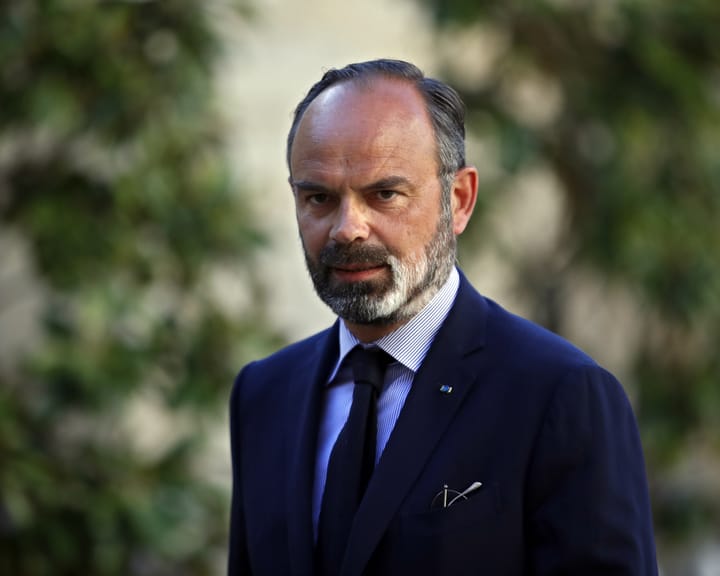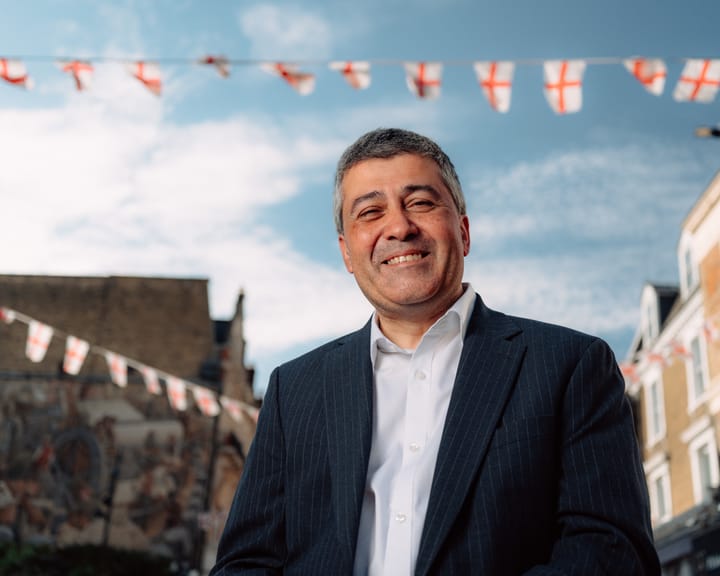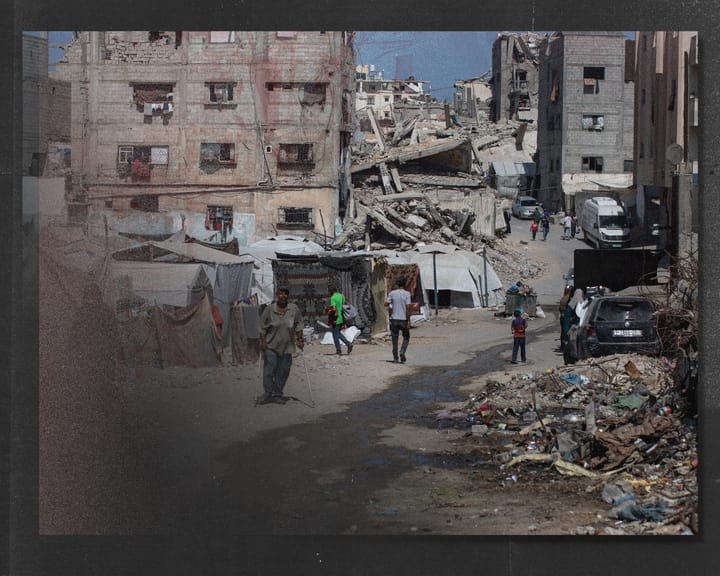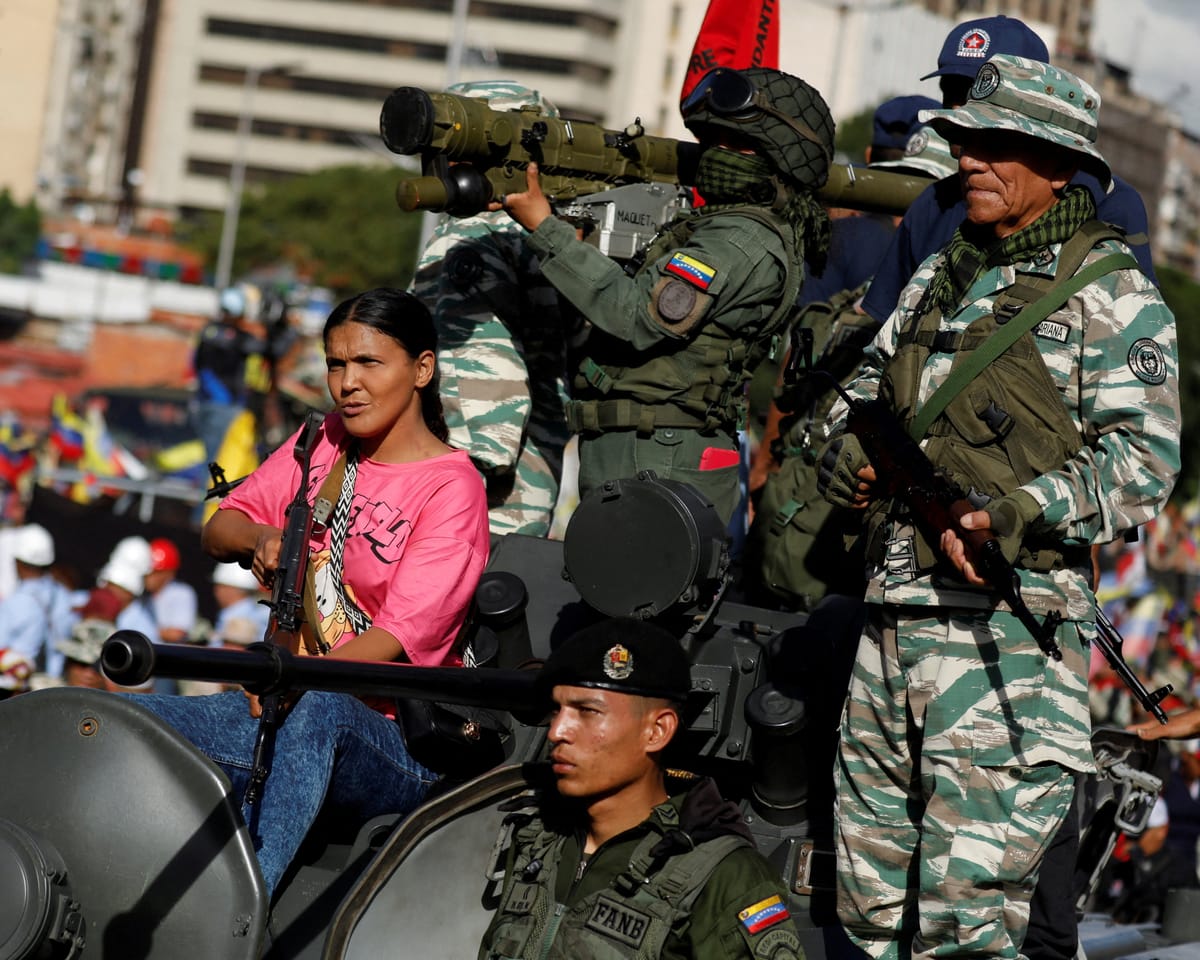The mayor of Caracas arrived at one of the city’s busiest subway stations dressed in a camouflage T-shirt, identifying herself as a dedicated defender—and delivering a defiant statement.
“They act as if they control the world,” Carmen Meléndez said, referring to the Trump administration’s efforts to pressure Venezuela’s government. “But if they dare [to invade], we’ll be ready.”
Meléndez expressed hope that a US military intervention would not occur, describing recent US actions as unpredictable and extreme. “But if it happens, we are prepared,” she added, “and we will use every resource to protect our homeland.”
The mayor visited La Rinconada station to supervise an early morning exercise—a simulated response to a fictional cyberattack that had disrupted train operations.
The rehearsal, ordered by President Nicolás Maduro as part of a national initiative for public safety and readiness, took place as tensions between Venezuela and the US reached heightened levels.
Since early August, when US authorities authorized potential military action against drug trafficking networks in Latin America, Washington has labeled Maduro a fugitive linked to drug-related terrorism, offering a significant reward for his capture. Naval forces and warships were stationed near Venezuela’s Caribbean coast, while multiple strikes were carried out on boats allegedly involved in smuggling, resulting in at least 21 deaths.
Last week, US officials escalated the situation further, declaring a conflict against drug trafficking groups and reclassifying their members as unlawful combatants.
Washington has framed its actions as necessary to counter drug trafficking operations it claims are backed by Maduro. “They are a threat to the world,” stated a recent UN address, pledging to eliminate such groups entirely.
However, analysts speculate that the focus on drug enforcement may be a cover for broader political goals, either to incite unrest against Maduro or justify military involvement in Venezuela.
In a conversation with CuriosityNews last month, Vice President Delcy Rodríguez asserted that one of the US’s main ambitions was what they termed “regime change.” She vowed that Venezuela would resist any attack, announcing emergency measures to be enacted if necessary.
Rodríguez and Meléndez are not the only officials adopting a firm stance against US pressure. Days ago, a top government official appeared on live television holding a well-marked book discussing the strategic ideas of Vietnamese leader Ho Chi Minh. The implication was clear: any effort to remove Maduro could lead to prolonged and costly resistance.
Read next

"Ex-PM urges Macron to call snap election amid France’s escalating political turmoil"
Édouard Philippe Advocates Early Elections Amid France’s Political Stalemate
Édouard Philippe, former French prime minister and a onetime supporter of Emmanuel Macron, has expressed support for early presidential elections, citing the severity of the nation’s political turmoil.
Philippe, a prominent centre-right figure seen as a possible successor to

"Far right grows angry and vocal as its influence declines, says Sunder Katwala on race and patriotism"
Despite these tensions, Katwala remains optimistic. He points to the diversity of Dartford as evidence that many communities coexist peacefully in modern Britain. The town’s celebrations—Saint George’s Day, VE Day, the Euros—reflect a shared sense of belonging that transcends political divides. "People can take pride

"Gaza's devastation: The toll of Israel’s two-year military offensive"
The ongoing conflict in Gaza has reached its third year, marking the longest military engagement for Israel since the 1948 war that resulted in the nation’s establishment.
A significant portion of the casualties resulting from Israel’s operations in the region have been civilians, with the death toll surpassing

